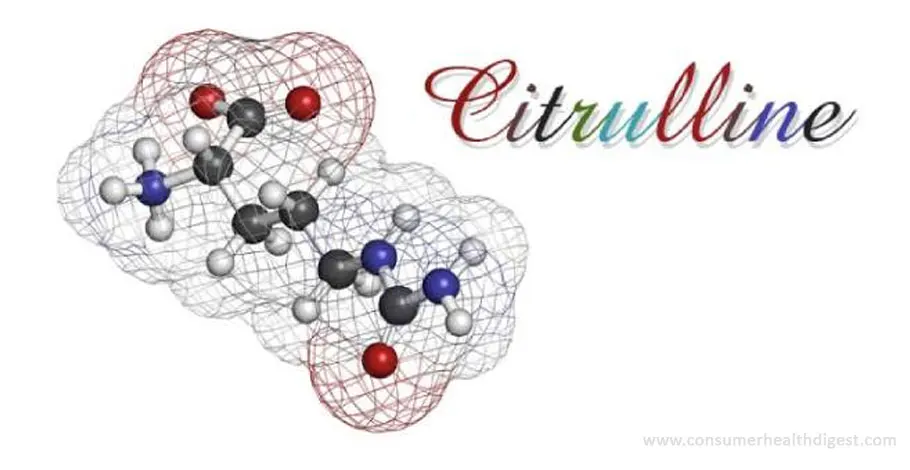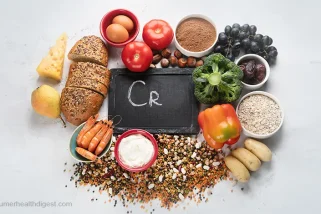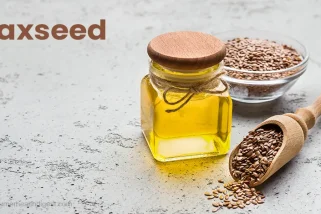In This Article
Citrulline Overview
Citrulline is becoming more common as a supplement for well-being and athletic performance. Citrulline is created naturally in the body and found in meals; however, supplementing with it raises the body’s citrulline content above normal levels.
While some believe it is beneficial to one’s health and workout performance, others are unconvinced. This article will cover all you need to know about citrulline, including whether or not you should take it.

What is Citrulline?
Amino acids are sometimes referred to as “life’s building blocks.” The ones you get from food are known as “essential amino acids,” and you need to get them from somewhere else to live. Others are generated by your body and are referred to as “non-essential amino acids” because they are not required for survival in the human diet.
L-citrulline is one of these non-essential amino acids. The amino acid L – Citrulline is a naturally occurring chemical compound. Its name comes from the Latin word Citrullus, which means “watermelon.” [1]
It’s been known for decades, but it’s just recently emerged as a promising agent for increasing aerobic and anaerobic capacity. [2]
Citrulline malate and L-citrulline are two types of citrulline that are available as supplements. The main distinction between the two kinds of citrulline is that L-citrulline is pure citrulline, while citrulline malate is a combination of L-citrulline and DL-malate (a compound that may be instrumental in converting food to energy.)
Diabetes, weariness, dementia, high blood pressure, erectile dysfunction, sickle cell disease, heart disease, Alzheimer’s disease, and muscle weakness are treated by L – citrulline. [3]
How Citrulline Works?
Citrulline has several essential physiological effects. It operates in a variety of ways, one of which is to increase vasodilation.
The expansion of arteries or veins is referred to as vasodilation. It’s linked to a reduction in blood pressure and an increase in blood flow. Some citrulline is transformed into arginine, which is another amino acid after it is ingested.
Interestingly, citrulline may enhance arginine levels in the body more than arginine alone. This is due to changes in how arginine and citrulline are processed and absorbed by the body. One of the processes involved in citrulline’s favorable benefits on exercise performance could be increased nitric oxide and blood flow. [4]
Although citrulline isn’t an amino acid directly used to make proteins, it’s been shown to boost protein synthesis by activating an important muscle-building signaling pathway.
Citrulline may also limit the degradation of some amino acids by reducing their uptake by the liver. These impacts on protein synthesis and amino acid degradation could help in keeping or gaining muscle mass.
The Common Sources of Citrulline?
According to researchers, watermelon includes significant levels of many immune-boosting antioxidants, including the amino acid citrulline and lycopene. Citrulline is found in various protein foods, including meats, milk, fish, and legumes. It can also be found in particular vegetable sources like onions and garlic. Walnut seedlings are also the most abundant source of citrulline.
Citrulline Benefits
Citrulline is required for the urea cycle, but it also offers a few other benefits. One of the most significant benefits of the amino acid is that it encourages vasodilation or the widening of blood vessels. Single dosages of the vitamin do not appear to have any effect, according to current research. On the other hand, long-term use has been shown to help people who have or are at risk of heart disease.
Citrulline also has the following health benefits:
- 1. May Improve Athletic Performance
- 2. It Has the Potential to Lower Blood Pressure
- 3. May increase growth in hormones
- 4. May improve endurance performance and weight training
- 5. May Help Your Blood Vessels Widen
Citrulline has been shown in several studies to boost athletic performance. It may accomplish this by raising oxygen levels in the muscle tissue. Supplements may not help the body use more oxygen, but they may help the muscles use oxygen more efficiently, which can help in improving endurance. [5]
Citrulline supplements may lower blood pressure, especially in persons with high blood pressure. [6]
Citrulline can boost the amount of growth hormone (GH) released after a workout. The rise in growth hormones and other hormones after exercise may play a role in the beneficial adjustments your body undergoes when you exercise. [7]
Citrulline may improve exercise performance and increase oxygen content in the muscles. Taking supplements may help in enhancing endurance and weight-lifting performance. [8]
Blood pressure and blood flow to tissues may be improved by improving the ability of blood vessels to enlarge. A single dose of L-citrulline has been proven in studies to have no effect on the ability of the arteries to widen in healthy or diseased people. [9]
Recommended Doses and Timing for Citrulline
Citrulline dosage is determined by several factors, including the user’s health and age. According to current studies, a daily intake of 3–6 grams of L-citrulline or around 8 grams of citrulline malate is recommended.
Always read and follow the directions on the product labels, and consult your doctor before using.
Citrulline Side Effects
It doesn’t appear to have any significant negative effects, but additional research is needed to ensure its long-term safety in high doses. Unlike L-arginine and L-ornithine, very high amounts of this amino acid do not appear to cause gastrointestinal distress.
Citrulline FAQ’s
Q: What is Citrulline Malate?
A: It is the most studied form of citrulline, and there are assumptions that malate has an independent role in performance improvements, although there isn’t enough data to directly compare citrulline malate to L-citrulline.
Q: What is L-citrulline Good for?
A: The body produces L-Citrulline naturally. Our bodies convert L-Citrulline into L-arginine, an amino acid, and nitric oxide. It aids in the increase of the store ingredients required by the body to produce some proteins. It enhances blood flow by widening arteries and veins.
Q: What is Citrulline Used for?
A: Even though there is little scientific evidence to support many of the claims about L-Health citrulline malate benefits, the natural supplement is purported to have various health-promoting characteristics and is used to treat a variety of ailments, including:
- Increasing physical activity
- Increasing athletic ability [10]
- Aiding in the treatment of erectile dysfunction [11]
- Reducing high blood pressure (hypertension)
- Sickle cell anemia treatment
Q: What Food Contains L-citrulline?
A: Watermelon, meats, seafood, milk, and legumes all contain citrulline naturally. It can also be found in particular vegetable sources like garlic and onions. Walnut seedlings are also the most abundant source of citrulline. [12]
Q: Does Citrulline Detoxify Ammonia in the Body?
A: The amino acid citrulline is also used to detoxify ammonia. It isn’t found in any important enzymes or proteins. It is abundant in the liver, where it is involved in the urea cycle, which excretes and detoxifies ammonia. The urea cycle produces this unique amino acid by combining ornithine with ammonia and carbon dioxide. Citrulline’s primary purpose is to convert harmful ammonia into less toxic urea.
Q: Is Arginine or Citrulline Better?
A: Citrulline appears to result in higher and more consistent arginine levels than arginine, according to some studies. Citrulline is easily converted to arginine as needed, and it is also better absorbed than arginine, making it an excellent source of arginine for the body and a less likely source of gastrointestinal discomfort when taken in high doses.
Q: How Much L-citrulline Do I Take?
A: According to current studies, a daily intake of 3–6 grams of L-citrulline or around 8 grams of citrulline malate is recommended.
Q: Is L-Citrulline Safe?
A: Yes, citrulline is considered safe.
Final Verdict
Citrulline-rich vegetables assist the body manage nitrogen levels in the bloodstream, allowing the circulatory system to deliver more oxygen and blood to the body. Consult your doctor to learn more about citrulline and the foods high in citrulline.
Was this article helpful?
11 Sources
We review published medical research in respected scientific journals to arrive at our conclusions about a product or health topic. This ensures the highest standard of scientific accuracy.
[1] Allerton TD, Proctor DN, Stephens JM, Dugas TR, Spielmann G, Irving BA. l-Citrulline Supplementation: Impact on Cardiometabolic Health. Nutrients. 2018;10(7):921. Published 2018 Jul 19. doi:10.3390/nu10070921[2] Gonzalez AM, Trexler ET. Effects of Citrulline Supplementation on Exercise Performance in Humans: A Review of the Current Literature. J Strength Cond Res. 2020 May;34(5):1480-1495. doi: 10.1519/JSC.0000000000003426. PMID: 31977835.
[3] Waugh WH, Daeschner CW 3rd, Files BA, McConnell ME, Strandjord SE. Oral citrulline as arginine precursor may be beneficial in sickle cell disease: early phase two results. J Natl Med Assoc. 2001 Oct;93(10):363-71. PMID: 11688916; PMCID: PMC2594068.
[4] Bahri S, Zerrouk N, Aussel C, Moinard C, Crenn P, Curis E, Chaumeil JC, Cynober L, Sfar S. Citrulline: from metabolism to therapeutic use. Nutrition. 2013 Mar;29(3):479-84. doi: 10.1016/j.nut.2012.07.002. Epub 2012 Sep 28. PMID: 23022123.
[5] Bailey SJ, Blackwell JR, Lord T, Vanhatalo A, Winyard PG, Jones AM. l-Citrulline supplementation improves O2 uptake kinetics and high-intensity exercise performance in humans. J Appl Physiol (1985). 2015 Aug 15;119(4):385-95. doi: 10.1152/japplphysiol.00192.2014. Epub 2015 May 28. PMID: 26023227.
[6] Wong A, Alvarez-Alvarado S, Jaime SJ, Kinsey AW, Spicer MT, Madzima TA, Figueroa A. Combined whole-body vibration training and l-citrulline supplementation improves pressure wave reflection in obese postmenopausal women. Appl Physiol Nutr Metab. 2016 Mar;41(3):292-7. doi: 10.1139/apnm-2015-0465. Epub 2015 Nov 17. PMID: 26863234.
[7] Wong A, Alvarez-Alvarado S, Jaime SJ, Kinsey AW, Spicer MT, Madzima TA, Figueroa A. Combined whole-body vibration training and l-citrulline supplementation improves pressure wave reflection in obese postmenopausal women. Appl Physiol Nutr Metab. 2016 Mar;41(3):292-7. doi: 10.1139/apnm-2015-0465. Epub 2015 Nov 17. PMID: 26863234.
[8] Bailey SJ, Blackwell JR, Lord T, Vanhatalo A, Winyard PG, Jones AM. l-Citrulline supplementation improves O2 uptake kinetics and high-intensity exercise performance in humans. J Appl Physiol (1985). 2015 Aug 15;119(4):385-95. doi: 10.1152/japplphysiol.00192.2014. Epub 2015 May 28. PMID: 26023227.
[9] Bailey SJ, Blackwell JR, Lord T, Vanhatalo A, Winyard PG, Jones AM. l-Citrulline supplementation improves O2 uptake kinetics and high-intensity exercise performance in humans. J Appl Physiol (1985). 2015 Aug 15;119(4):385-95. doi: 10.1152/japplphysiol.00192.2014. Epub 2015 May 28. PMID: 26023227.
[10] Bailey SJ, Blackwell JR, Lord T, Vanhatalo A, Winyard PG, Jones AM. l-Citrulline supplementation improves O2 uptake kinetics and high-intensity exercise performance in humans. J Appl Physiol (1985). 2015 Aug 15;119(4):385-95. doi: 10.1152/japplphysiol.00192.2014. Epub 2015 May 28. PMID: 26023227.
[11] Cormio L, De Siati M, Lorusso F, Selvaggio O, Mirabella L, Sanguedolce F, Carrieri G. Oral L-citrulline supplementation improves erection hardness in men with mild erectile dysfunction. Urology. 2011 Jan;77(1):119-22. doi: 10.1016/j.urology.2010.08.028. PMID: 21195829.







 This article changed my life!
This article changed my life! This article was informative.
This article was informative. I have a medical question.
I have a medical question.
 This article contains incorrect information.
This article contains incorrect information. This article doesn’t have the information I’m looking for.
This article doesn’t have the information I’m looking for.